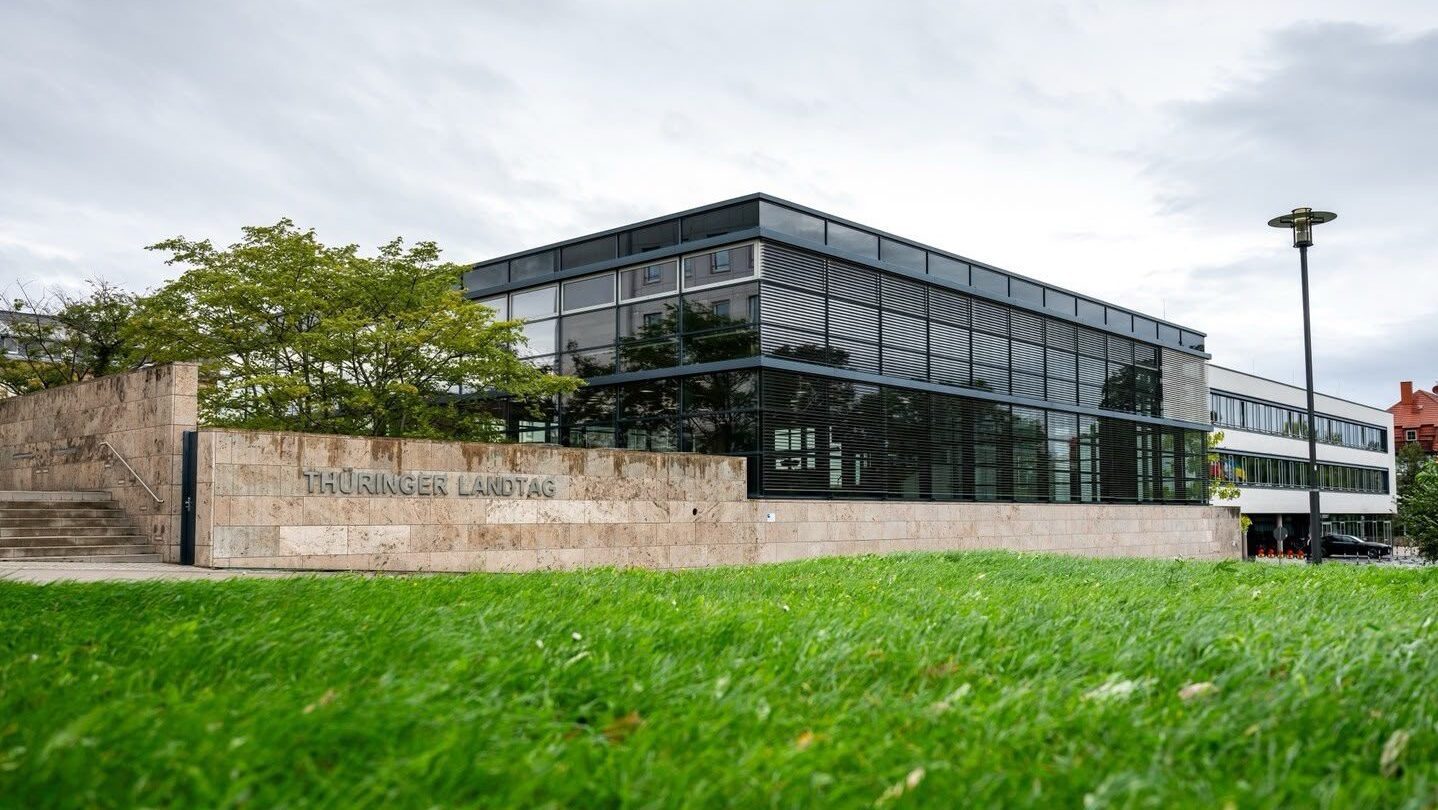No products in the cart.

The opening session of the Thuringian parliament on Thursday, September 26th, descended into chaos, resulting in no significant decisions and the inability to elect a speaker. Having won the regional elections on September 1st, and holding the largest number of seats in the parliament, the anti-immigration, right-wing Alternative für Deutschland (AfD) party rightly wanted to take charge of the proceedings and nominate its own candidate for the position of parliamentary speaker.
However, all the other parties—who have vowed never to cooperate with AfD either nationally or regionally, thereby ignoring the will of millions of voters—ironically called out the AfD for “disregarding democracy.”
AfD won the regional elections in the eastern state of Thuringia comfortably, receiving 32.8% of the votes and 32 seats in the 88-seat parliament. The party does not have a majority to form a government, and will remain in opposition due to the cordon sanitaire imposed by the other parties. However, it does have the right to nominate a candidate for the position of speaker, which it attempted on Thursday, the first session of parliament following the elections.
However, its decision to put forward Wiebke Muhsal for speaker of the chamber was dismissed by the other parties—the centre-right CDU, the left-wing nationalist Bündnis Sahra Wagenknecht, the hard-left Die Linke, and the Social Democrats—saying she has little chance of commanding a majority. But the AfD refused to consider changes to the rules that would allow other parties to put forward competing candidates, and adjourned the meeting.
Wer sich die 1. Sitzung des Landtags #Thueringen ansieht, kann die Demontage der Demokratie live mitverfolgen. Die Altparteien versuchen mit allen Mitteln, einen legitimen #AfD-Landtagspräsidenten zu verhindern. Besonders tut sich hierbei das #BSW hervor, gemeinsam mit der #CDU. pic.twitter.com/wNRvqm7T9v
— AfD (@AfD) September 26, 2024
The AfD argued that the office of the speaker has always belonged to the strongest parliamentary group, and the party only followed parliamentary tradition and practice. “The voters expect us to do justice to these principles,” the father of the house, AfD politician Jürgen Treutler said.
Birgit Pommer of Die Linke said AfD had “disregarded the people of Thuringia and democracy.” Mario Voigt, leader of the CDU in Thuringia, which came second in the elections with 23.6% of the votes and 23 seats, called the AfD’s actions an “attack on the constitution.” He said that such a “guardian of the constitution” should not be appointed by a party that is classified as a right-wing extremist group by the state’s domestic intelligence agency.
The anti-globalist, anti-immigration party’s triumph and its rise across Germany has angered the liberal political establishment, which has been using all sorts of political and legal methods in recent years to undermine the credibility of the party. These include classifying the AfD as an extremist group, and allowing intelligence services to spy on the organisation.
Thuringia’s acting Interior Minister Social Democrat Georg Maier reiterated previous calls by other mainstream politicians to ban the AfD:
Today’s events in the Thuringian state parliament have shown that the AfD’s attitude towards parliamentarism is aggressive and combative.
Die heutigen Ereignisse im Thüringer Landtag haben gezeigt, dass die #AfD aggressiv kämpferisch gegen den Parlamentarismus vorgeht. Ich denke, dass damit die Voraussetzungen für ein Verbotsverfahren gegeben sind. 1/3
— Georg_Maier (@GeorgMaier8) September 26, 2024
The CDU plans to nominate its own candidate, Thadäus König, for the speaker’s post in Thuringia.
Mario Voigt plans to form a coalition government with the Bündnis Sahra Wagenknecht (15 seats) and the Social Democrats (6 seats) but even that won’t be enough for a majority. Though the CDU leadership has ruled out cooperating with post-communist party Die Linke (12 seats), it may have to find some sort of agreement with the pro-migration, pro-woke party to be able to govern Thuringia. This may upset a lot of the voter-base who would rather choose AfD.
According to a newly released survey, 60% of members of the Chamber of Industry and Commerce of Southern Thuringia believe the AfD should participate in the future state government, and almost half of the entrepreneurs surveyed are in favour of dismantling the cordon sanitaire.
Although the AfD is almost certain to remain frozen out of power in Thuringia, the party now has enough seats to veto key measures that require a two-thirds majority in parliament. That includes the appointment of certain judges as well as any changes to the state’s constitution.
On election night, Björn Höcke, the AfD leader in Thuringia, said he would use his blocking minority to defeat attempts by other parties to freeze it out of power.
After being abandoned this week, the opening session of the parliament aims to continue on Saturday.